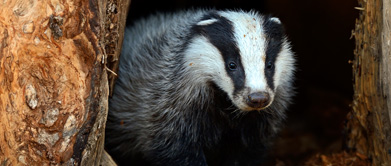Bird Surveys By Whitcher Wildlife
Whitcher Wildlife Ltd has experience in all aspects of bird surveying and most of our surveyors hold licences to survey for Barn Owls, a Schedule 1 bird species, in England.
Bird surveys take several forms with the most common being nesting bird surveys although breeding bird surveys and winter bird surveys are also a common requirement for larger sites. Each survey is carried out in a different manner and the survey method most applicable to a site is primarily based on the proposals for the site. An outline of the more common bird survey techniques we use are included below.
The findings of our bird surveys will be prepared into a comprehensive report outlining the survey findings, evaluating the impacts of any proposed works and making any recommendations necessary.
Nesting Bird Survey
Nesting bird surveys search for potential nest sites in vegetation, buildings etc during the nesting season, which is March to September, for most species. Potential nesting sites are observed over a suitable period of time for bird movements or calling male birds that would indicate the presence of a nest. The presence of a nest can sometimes be identified from field signs without the necessity to see the nest itself, thereby avoiding any disturbance of the nests.
Our surveyors are experienced in carrying out nesting bird surveys in all types of habitat and will utilise the methods appropriate to the site with some areas being visually searched for nests while other areas will be monitored for bird movements.
We also hold a range of equipment that will aid in nesting bird surveys, including several pole cameras, which allow the activity at nests to be accurately established.
Breeding and Winter Bird Surveys
Breeding and winter bird surveys are often required to provide detailed results in support of an Ecological Impact Assessment (EcIA). The level of survey required will be established based on the site and the required work. Our team will put together a survey methodology appropriate to the site, often requiring walked transects and static monitoring at appropriate times of year.
Contact NowSpecies We Deal With

We cover a wide range of species, find out more by viewing our dedicated species pages.
More info